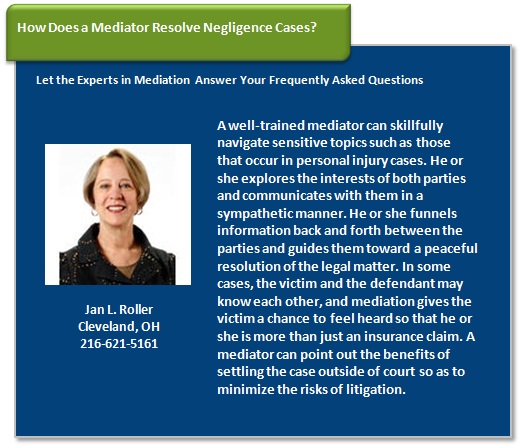 Attorneys’ fees disputes are so common that many states and bar associations provide free or low-cost mediation services to help attorneys and their clients resolve disputes regarding legal fees. The mediation process is voluntary and can help the parties resolve their dispute without need for any further legal action.
Attorneys’ fees disputes are so common that many states and bar associations provide free or low-cost mediation services to help attorneys and their clients resolve disputes regarding legal fees. The mediation process is voluntary and can help the parties resolve their dispute without need for any further legal action.
While fee disputes may appear to be about money, there are often other issues lurking around such disputes. A client may not have been satisfied with the attorney’s services or felt that he or she was disrespected in some way. He or she may have had an impression of the cost of litigation and was then surprised by a large legal bill.
Both parties have the possibility of benefiting from mediation. This gives the parties the opportunity to each speak their peace. A client may not have realized some of the things that he or she would be charged for and an attorney may reference the fee agreement that spelled out such charges. A client may feel that an attorney did not sufficiently communicating about progress in the case and associated costs. In some instances, the client may have discharged the attorney and feels like the fee is undeserved. A lawyer can explain his or her point of review in a respectful manner and potentially sidestep any larger concerns, such as an ethical complaint being made against him or her.
Mediation also provides for the possibility of the parties coming up with their own solution. This may include the lawyer writing off certain charges or offering a discount if the bill is particularly large. It could also mean the client offering to make monthly payments on the amount owed rather than facing legal action by his or her own attorney. A significant benefit of mediation is the ability for the parties to reach their own reasonable solutions.






 Negligence cases are some of the most commonly tried cases. A car accident, mistake made by a doctor or a defective product can quickly lead to litigation. However, ADR is often much better at resolving cases involving negligence.
Negligence cases are some of the most commonly tried cases. A car accident, mistake made by a doctor or a defective product can quickly lead to litigation. However, ADR is often much better at resolving cases involving negligence. Medical negligence cases are often complex in nature, typically requiring the testimony of a medical expert to substantiate the plaintiff’s claims. The legal and factual issues are often complex. These factors mean that there may be additional issues in dispute, which tends to make the case longer, more complicated or more expensive for both parties involved in the process.
Medical negligence cases are often complex in nature, typically requiring the testimony of a medical expert to substantiate the plaintiff’s claims. The legal and factual issues are often complex. These factors mean that there may be additional issues in dispute, which tends to make the case longer, more complicated or more expensive for both parties involved in the process.